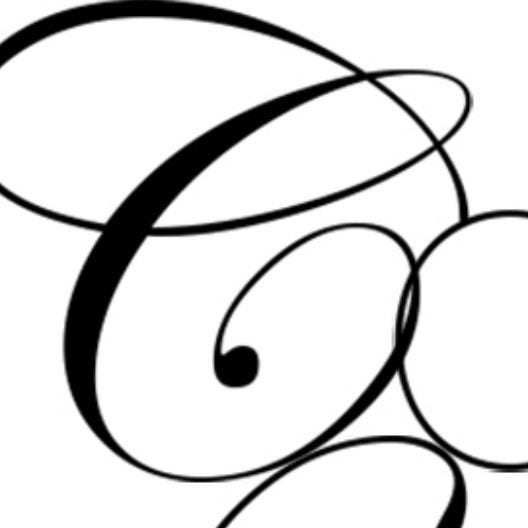Rambling speculations about absolutism, hypocrisy, incentives and fraying liberalism
(None of these things are necessarily bad - just maybe inevitable)
TL;CBAR - just skip to the very end for a subscriber-relevant announcement.
Anyway, this…
"When the world presents itself as a perpetually unruly too-muchness, the will to manipulate often makes itself known with appalling ferocity. This has been especially noticeable since the world got covidified, and biopolitical technocracy found a way to get more than a few words in edgewise. During this time, there’s been a widespread rediscovery of the inhuman propensity to try to quash complexity into puny conceptual containers while preemptively dodging difficult questions. Even as the volume of the chatter has increased, the shape of our interactions has often been transformed into a range of gestures of avoidance. The meaning of being has been rendered simple: to be is to decide, control, diagnose, determine, identify, distinguish, categorize, confirm, manage, and fact-check. To be is to pick a side and stick with it, even when it becomes unhinged. In a word, to be is to manipulate."
Yes. That.
Covid-19 was a gift for revealing how the 'omnicrisis' works. What connects co-mingling problems that feel related, even when you can't quite articulate how they connect. In particular I was fascinated with the light it shone on how our personalities - rather than raw epistemology - determine where we stand on issues we tend to know little about.
That opening text is lifted from a fascinating and sometimes beautiful Substack called Covidian Æsthetics, which deals with the philosophy of the pandemic. It's occasionally inscrutable (that's philosophy for you) but Covidian Æsthetics is intellectual nectar in a tiresome world where people still argue about whether masks work or if vaccine-related deaths are statistically that big of a deal. It ascends above the dull epistemic weed tangle, boards a private luxury helicopter and sweeps over the broken landscape to map out the topography.
Covid reveals a lot about how humankind works, like who always wins and loses when shit goes down (don't tell me that isn't almost always about education/class). But how we see ourselves and our place in the world, through different cognitive and behavioural styles reacting to complex and contradictory information landscapes, is the one I'm most obsessed with. And within that particular strand is control and will which are, arguably, the qualities of mind that Covid shone the harshest light on. I didn't have the words to express this until Duncan Reyburn's Covidian Æsthetics piece. Read it and if you like it sign up for Covidian Aesthetics. Proof that philosophy is now more punk than politics.
Readers since the early days of Rarely Certain already know how I was curious to understand exactly why I was bloviating so hard on Twitter and the manifest benefits I found from stepping away from it and dialling down on the psychic dynamics that I identified. That all left me wondering about the energies that underlie the things we think and why we express them in the ways we do. Arguably those deeply personal currents and dynamics are more significant and illuminating than our opinions themselves, our interpretations of the world and the resulting controversies that arise.
How you spot what’s going on for you is simple, although takes practice. Someone says something that triggers a reaction in you. Instead of pushing back, just examine what went on for you in those initial moments. Why am I annoyed that this person thinks this wrong thing. Or thinks that I’m wrong. And when you’ve mastered that try asking what am I really trying to do when I tell them they're wrong. Another good one is what is the cost to me of letting them think what they do and not prevailing with my (presumably) superior view. Be as precise as you can, in all these. Insights won’t necessarily come instantly, so don't be disheartened if nothing really pops up at first.
When it does, it's interesting.
My strongest suspicion is that it's mostly about control and will. And what's funny about it is that when you feel the need to exercise control and will over other people's opinions all you're really doing is placing your own wellbeing or validity in this world into the hands of someone else. And when you stop caring that someone is mistaken (in your view) it just feels better.
This may be just me getting old and too weary to 'debate'. Or it may be a benefit of mindfulness practice and a desire to be more compassionate, accepting and less tribal. Probably all of those, really. But caring less feels like a burden lifted.
Detaching in that way led to some personal pet theories and speculations about the culture war and what underlies some of the social/ideological currents running through all this stuff. Some of these ideas aren't all that sexy. Really they're just kind of boringly human. A sort of antithesis to the constant tide of breathless thinkpieces designed to inspire a steady state feeling of peril.
Here's one.
Why do ideologies with roots in promoting obviously desirable outcomes always end up tending toward absolutism?
You start with something bad and you oppose it. Then you largely overcome the bad thing. Job done, right?
No way is the job done, say the activists. No matter how much progress has been made.
My intuition is that other interests replace the mission that the rest of us think was accomplished. This is maybe why we see the sort of mission creep that characterises, say, sexual identity rights.
Keep reading with a 7-day free trial
Subscribe to Rarely Certain to keep reading this post and get 7 days of free access to the full post archives.



